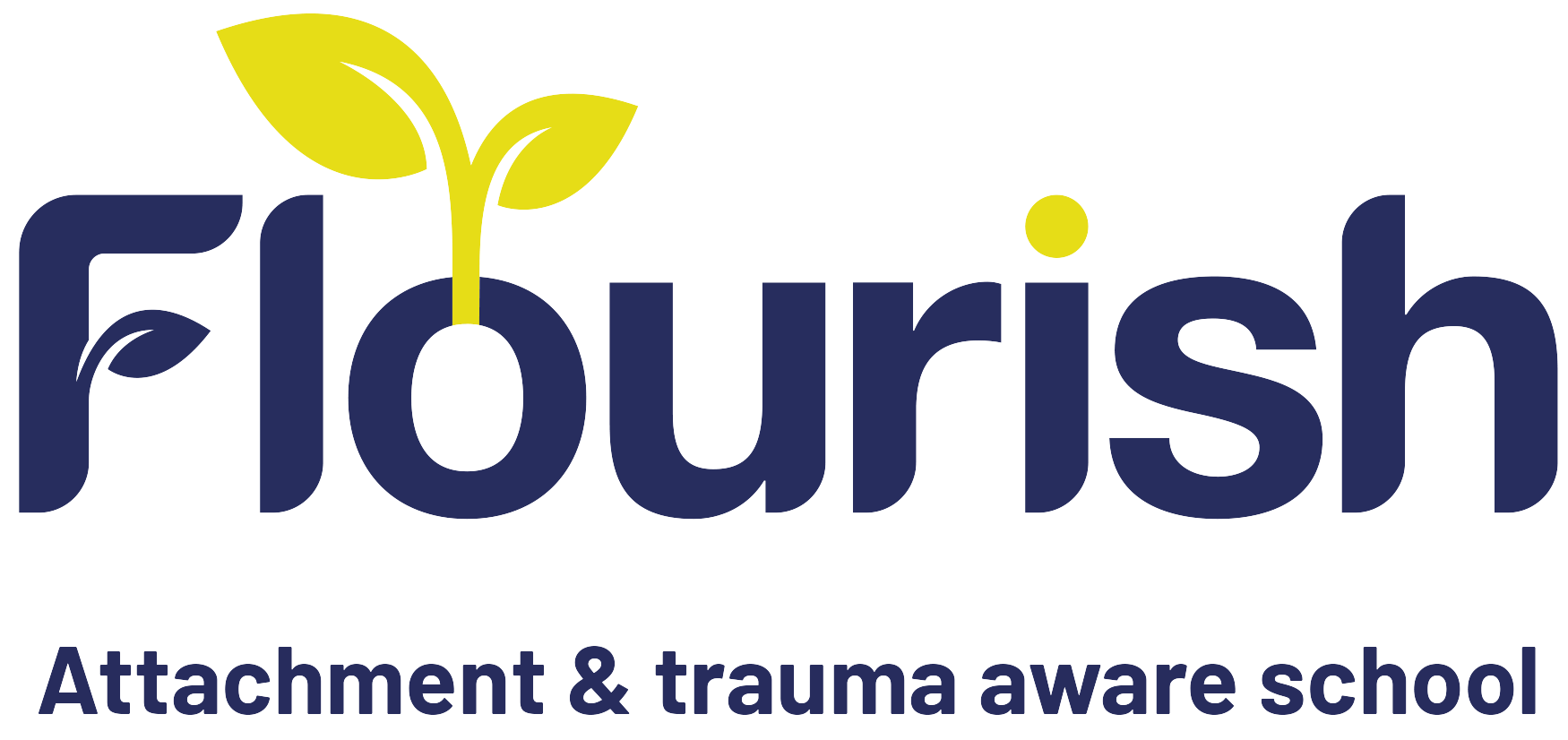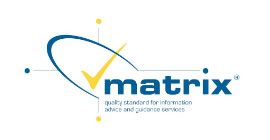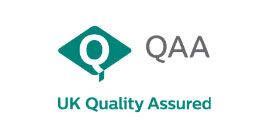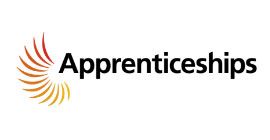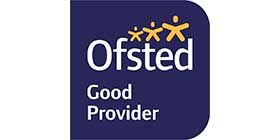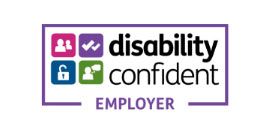

UK Shared Prosperity Fund (UKSPF)
We are pleased to announce that we have secured funding from the UK Shared Prosperity Fund (UKSPF) which is part of the new government Levelling Up Project. As a college we will be supporting local businesses, entrepreneurs, volunteers and our local community with training and development in line with the local skills demand. We will also be supporting businesses with decarbonation and promoting awareness of sustainable practices.



TRAINING COURSES AVAILABLE TO SUPPORT YOUR BUSINESS
Business & Management Courses
Aspiring Leaders Programme
If you aspire to attain a leadership position in the future, the best way to prepare yourself is to demonstrate key leadership characteristics. Whether you’re a leader in an official capacity, or a team member who seeks greater responsibility, adopting, practicing, and applying the aspiring leader’s principles will support you to develop the key characteristics and traits to achieve personal and professional objectives.
The sessions will explore the following key themes and will be delivered in a collaborative, experiential format. This will support you to explore issues you may encounter and identify possible solutions to move forward.
Communication and Influence
Coming soon
To truly motivate others to accomplish great things, you’ll need to be able to share your ideas persuasively and ensure your messages are received as intended. Effective communication is at the root of the ability of a leader to engage, align, inspire, and move people to act.
Emotional Intelligence
Coming soon
Our ability to understand and regulate our feelings is what psychologists often call “emotional intelligence” Leaders who have a high level of emotional intelligence enjoy a variety of benefits, including a heightened sense of self-awareness, an exceptional ability to understand others, a broad and diverse social network, greater motivation, and a higher income.
Self-Awareness
13 December 1:30pm – 4:30pm
The way we perceive ourselves can be much different than the way our colleagues perceive us due to unconscious bias. The best leaders exercise self-awareness by consistently asking questions about their performance and welcoming constructive feedback. You’ll also receive a guide to create a practical and sustainable leadership development plan.
Growth Mindset
10 January 1:30pm – 4:30pm
Leaders who believe their talents can be developed – through learning, practice, and hard work – have a growth mindset. Those with a growth mindset continuously learn throughout their careers to stay current with the best practices and trends in their industry. They adapt to the changing dynamics of the contemporary workplace, identify opportunities for personal growth, and, most importantly, apply their new knowledge and skills to support the development of their team.
For further information
Bookkeeping Courses
We are pleased to announce that we have secured funding from the UK Shared Prosperity Fund (UKSPF) which is part of the new government Levelling Up Project. As a college we will be supporting local businesses, entrepreneurs, volunteers and our local community with training and development in line with the local skills demand. We will also be supporting businesses with decarbonation and promoting awareness of sustainable practices.
Introduction to Bookkeeping Part 1
Friday 23 February, 9.30am to 12.30pm
The course consists of the following units:
- The accounting process and flow of information from book of prime entry like sales day book/purchase day book/cash book, to ledgers, to financial statements (profit & loss and balance sheet)
- Why we need these financial statements - classification of elements: assets, liabilities, income, expense, capital – double effect
- Essential accounting documents - invoices/purchase orders/credit notes/remittance advice/statement of accounts
Introduction to Bookkeeping Part 2
Friday 1 March, 9.30am to 12.30pm
The course consists of the following unit:
- The tax implications and filing obligations for the most common business structures and how to ensure your business is tax efficient
- Allowable and disallowable expenses
- How to use your bookkeeping records to make decisions about your business
Accounting with Software
Friday 8 March, 9.30am to 12.30pm
The course consists of the following units:
- How to ACCURATELY enter all transactions in an accounting software
- How to carry out some basic accounting reconciliation (bank reconciliation)
For further information
CMI Leadership & Management Training Level 3
CMI 317 Supporting the Delivery of Customer Service
Wednesday 10 January • Wednesday 24 January • Wednesday 7 February 2024 • 10am – 3pm
Customers are key to the success of any business and it is essential to know how to deliver a great customer experience that meets and exceeds the expectations of all customers. This should be regardless of whether they are a colleague, department within an organisation, or a member of the public purchasing a product or using a service. The aim of this unit is to equip you with an understanding of the parameters in which good customer service is delivered. It focuses on the end to end customer journey and encourages you to reflect on the customer service experience through the customer’s eyes.
CMI 306 Principles of Equality, Diversity & Inclusive Working Practices
Tuesday 5 March • Tuesday 19 March • Tuesday 2 April 2024 • 10am – 3pm
Treating colleagues, customers and stakeholders with dignity and respect enables relationships to develop and thrive. This unit focuses on how to develop inclusive working practices in line with organisational and legal frameworks. This will not only improve the productivity and wellbeing of staff, but impact positively on the whole customer experience.
CMI 310 Supporting Teams and Individuals through Change
Tuesday 7 May • Tuesday 21 May • Tuesday 4 June 2024 • 10am – 3pm
Change is inevitable if an organisation is to maintain competitiveness and currency of practice. Managers are constantly asked to implement change to respond to commercial pressures, legal organisational requirements, efficiencies or improvements. Success often depends on the support given by managers to staff. The aim of this unit is to enable managers to lead people positively through change. This is achieved by implementing plans which identify ways to make change successful, and gaining the support and trust of individuals and teams.
For further information
CMI Leadership & Management Training Level 5
Unit 501 - Principles of Management and Leadership in an Organisational Context
- Tuesday 9 January 2024, 9am-12pm
- Tuesday 23 January 2024, 9am-12pm
- Tuesday 6 February 2024, 9am-12pm
Being equipped with the knowledge, skills and behaviours to manage and lead in a variety of organisational settings is essential if an individual and their organisation are to succeed. This unit has been designed for those who want to develop or sharpen their professional edge and enhance personal effectiveness. You will evaluate the impact of an organisation’s structure and governance on management and leadership, and then explore theoretical models, management and leadership styles and approaches designed to promote a culture of mutual trust, respect and support.
Unit 502 - Developing, Managing and Leading Individuals and Teams to Achieve Success
- Tuesday 27 February 2024, 9am-12pm
- Tuesday 12 March 2024, 1-4pm
- Tuesday 26 March 2024, 1-4pm
The ability to lead individuals and teams to success is arguably the most important skill a manager can possess. This unit focuses on the essential management and leadership skills required to fulfil this challenging but rewarding role. The unit opens by focusing on the theoretical and practical approaches to developing, leading, and managing teams (remote or multi-disciplinary). The manager will look at techniques to assess current and future team capabilities, including the role of recruitment, selection and staff development which supports this. On successful completion of the unit, the manager will not only know the principles of managing individuals and teams, but they will understand approaches for supporting, motivating and inspiring teams and individuals to exceed expectations.
Unit 504 - Managing Performance
- Tuesday 23 April 2024, 9am-12pm
- Tuesday 7 May 2024, 9am-12pm
- Tuesday 21 May 2024, 9am-12pm
Managing the performance of staff is essential to the smooth running of an organisation. This unit evaluates the reasons for managing performance and the approaches that can be used. It explores methods of rewarding the performance of individuals who exceed expectations, and analyses ways of managing under performance in a professional and supportive manner. This unit focuses on the way performance management, when used effectively, is able to impact on individual and organisational achievement.
For further information
Customer Relationship Training
How to develop Customer Relations in Hospitality
Coming soon
How to develop Customer Relations in Retail
6 February 2023, 10am to 3pm
Customer Relations are so much more than the products customers require, whether that is a pair of shoes, a new car or a tin of beans, it is about making people feel special. Those businesses that do this well have happier customers, less complaints and most importantly repeat business.
These 1-day courses explores the opportunities and skills to enable you to make your customers feel special. They are about understanding how we communicate and understanding sometimes why it goes wrong. It provides models to follow when someone complains, techniques to use to encourage sales and explores how different cultures have different social norms.
Course content:
- Objectives
- Understanding communication
What is communication
The communication model - Demonstrate ways to build customer rapport
Body language
Question technique (be interested, not interesting)
Reading customer needs - Identify the ‘moments of truth’ you have with the customer to create a positive impression
- Telephone skills
- How to handle a complaint effectively
- Encouraging sales
Know your product
Identifying customer needs
How to conduct a showround - Understanding different cultures
How do different cultures like to be addressed
What are their social norms - Takeaways from the day
Training & Development Workshops
The Employer Engagement Team support businesses to identify, design, develop and implement work-force education and training programmes linked to the strategic needs of your business. We have outlined below just some of the workshops we have on offer.
Emotional Intelligence in the Work Place
Coming soon
Employer Hub, Lancaster & Morecambe College
Research has identified having high levels of emotional intelligence (EI) is a greater indicator of personal success than having high level of intelligence Quotient (IQ). In the workplace having managers with high levels of EI leads to more open and motivated team working.
The course will provide an overview of the 4 components of the Emotional Intelligence model; Emotional Self Awareness, Self-Management, Social Awareness and Social Skills and explore how each component relates to activities in the workplace.
Train the Trainer
Coming soon
Employer Hub, Lancaster & Morecambe College
The 2-day Train the Trainer Course provides learners with a really ‘hands-on’ experience of how to train practically in the work place. The initial morning will focus on how people learn and how that translates into steps of an effective training session. The afternoon and following day will provide the learners with the opportunities to practice these skills a minimum of twice and also learn different training techniques to make their training more interactive.
Developing Productive Teams
Coming soon
Employer Hub, Lancaster & Morecambe College
We have all worked for teams that on paper should be brilliant, but for whatever reason never really deliver their full potential. The aim of the 1-day course is to consider what elements make a truly effective team and then to identify and explore ways in which these elements can be encouraged within your own teams. The elements include areas such as team trust, accountability and fear of conflict and inattention to results.
Communication Skills
Coming soon
Employer Hub, Lancaster & Morecambe College
The course explores what elements prevent teams from communicating effectively and delivering results, using the 5 ‘Dysfunctions of a Team’ model and providing practical solutions to improve the communication.
Having considered team dynamics in communication the course then focuses on individual communication styles and how they impact our ability to influence and persuade. You will identify your own style and practice using other styles.
Social Media: An overview of the platforms
Coming soon
Employer Hub, Lancaster & Morecambe College
Navigate the world of social media with confidence after this comprehensive workshop. We'll delve into the key platforms, exploring who uses them and how to decide which ones merit your time and energy.
Outcomes:
- Gain a broad understanding of the major social media platforms.
- Understand the demographics and usage patterns of each platform.
- Learn how to choose the right platforms for your business based on your target audience and goals.
Motivation Skills:
How to get the Best from Your Team
16 January 2024, 10am-3pm
Employer Hub, Lancaster & Morecambe College
Teams who are motivated and engaged in their organisation are more productive, take less sick leave and stay longer.
In this course you will explore the theories of motivation and then identify motivation factors on 3 levels for yourself, for each of your team members and for the team as a whole. Once identified you will explore practical activities to undertake to improve motivation and engagement in your team.
Employee Relations – Handling Grievances & Disciplinaries
23 January 2024, 10am-3pm
Employer Hub, Lancaster & Morecambe College
Employee relations is the management of employees who are not working within the terms of their employment, whether that is due to capability or poor behaviour.
The course will explain the disciplinary process and potential legal pitfalls and work through a number of case studies to provide confidence in handling disciplinary situations in the workplace.
Appraisal Skills
30 January 2024, 10am-3pm
Employer Hub, Lancaster & Morecambe College
An appraisal conducted positively will gain the commitment and energy of the employee to move forward with the organisation, delivered badly will demotivate and disengage the most committed staff member.
This practical course will enable managers of teams to prepare and deliver an effective appraisal interview and provide the skills of giving and receiving feedback, including how to handle difficult conversations.
For further information
ukspf@lmc.ac.uk • 01524 521223
Training & Development Workshops download
Sustainability Workshops
Lancaster & Morecambe College are pleased to offer these short workshops to support you, your business and employees in working sustainably.
Carbon Reduction Plans and Net Zero: A Practical Guide for your Business
2 February 2024, 9am – 12pm
20 February 2024, 9am – 12pm
- Carbon: what it is and why it matters
- Business carbon footprinting: a beginner’s guide
- Carbon offsetting, carbon neutral, net zero: making sense of it all
- Carbon reduction: practical ideas
- Meeting carbon-related standards and requirements: Carbon Reduction Plans, Science-Based net zero targets and more
Environmental Certification for your Business
2 February 2024, 1pm – 4pm
20 February 2024, 1pm – 4pm
- Understanding the environmental impacts of business
- Environmental certification: Business benefits
- Which environmental certification is right for your business?
- Taking environmental action: Practical ideas
Sustainable Practices in the workplace Level 1 Award
8 February 2024, 9am – 4pm
This 1-day Level 1 award will be of interest to a wide range of businesses looking to gain knowledge of
sustainable practices. On this course you will:
- Learn about the environmental impacts generated by business and how to respond to them
- Understand what climate change is and why reducing carbon emissions from business is so important
- Explore your own role and what you can do
Sustainable Practices for Managers Level 2 Award 2-day course
24 & 25 January 2024, 9am – 4pm
7 & 8 March 2024, 9am – 4pm
This 2-day Level 2 award will be of interest to supervisors and managers from a wide range of industries
and businesses. On this course you will:
- Be able to describe the key environmental impact of business
- Learn about the challenges and benefits to business of taking account of environmental impact
- Understand some key principles to develop an effective approach for your own business
- Learn about environmental standards and accreditations available to benefit business
For further information
ukspf@lmc.ac.uk • 01524 521223
Carbon Reduction & Sustainable Planning Training download
Sustainable Training for Business download
Health & Safety Courses
Understanding Substance Use and Misuse
Understanding Substance Misuse in the Care Sector
- 11 January 2024, 9am - 12pm
- 18 January 2024, 9am - 12pm
- 25 January 2024, 9am - 12pm
- 1 February 2024, 9am - 12pm
Understanding Substance Use and Misuse (Young Persons)
- 1 February 2024, 1pm - 4pm
- 12 February 2024, 1pm - 4pm
If you are a professional working in the education sector you will be acutely aware of the many challenges and temptations students encounter. Today the pressures being faced by our next generation cannot be underestimated and with this pressure comes the increased temptation and risks posed by Substances. If you feel that increasing your knowledge and developing your understanding of substance use and misuse fits in with your ongoing work and CIPD then please consider the following training.
The following topics will be delivered in a focused 3hr session, the delivery will be interactive, informative and challenging and will consider contemporary issues affecting students journeys with substance use and misuse.
- Young people Substance Use and Misuse
Objectives – To put some context to the issue of substance use and misuse. How and why does substance use progress from exploration and experimentation through to recreational use and possible dependency. What are the factors that contribute to the decision-making process? - Signs and Symptoms of Drug Use.
Objective – to increase awareness regarding the physical, psychological and emotional signs and symptoms. Develop insight into the potential consequences and know what to look for should an someone be taking substances. To increase awareness of the key characteristics of substances. To improve understanding of the Risks and Consequences. - Treatment Models, Drugs the Law, Support.
Objective – to gain a greater understanding of the theoretical basis of models for treatment, increase knowledge of the legal status and classification of substances and the implications for taking them, and explore what support is available for professionals, students, families and careers. To develop strategies to work with potential problems that may arise.
By the end of the session participants will be able to:
- Name the most common substances in use by age and describe their effects
- Identify the reason why some may choose to use substances
- Recognise the risk factors for Substance Use and Misuse
- Describe common patterns of use amongst certain age groups including poly-drug use
- Recognsie prevention, recovery and harm reduction intervention
- Identify effective strategies to work with individuals that support positive choices.
For further information
Manual Handling, Health & Safety and Risk Assessment Workshops
Lancaster & Morecambe College are pleased to offer these short workshops to support you, your business and employees in working safely. All workshops are available to be delivered in the workplace or at the Employer Hub at LMC.
Manual Handling
19 January 2024, 9am-12pm
16 February 2024, 9am – 12pm
This short half day workshop is designed to raise awareness, help reduce risk and encourage safer lifting techniques.
The workshop consists of the following units:
- The potential hazards of manual handling in the workplace
- Legislation and guidance
- Controlling and reducing the risk of harm
- Manual handling techniques
There will be an opportunity for some light practical exercises but these are optional. The course will run from 9am – 12pm with a short break. There is a multi-choice question paper assessment at the end.
Health & Safety
This short one day workshop aims to provide you with understanding and knowledge of health & safety. This is a college certified course designed to ensure that you are aware of your own safety and the safety of customers, contractors and the public.
The workshop consists of the following units:
- Understand the responsibilities placed on employers and employees
- Understand the hazards, risks and main causes of harm to workers
- Understand the importance of following systems, procedures and rules
- Understand how individual action can reduce risks to health and safety
- Appreciate how workplace equipment and task design affect health and safety
Risk Assessment
This short one day workshop is designed to help improve workplace culture and occupational health & safety by enabling you to understand the basic principles of risk assessment. This course is suitable for anyone in a work environment as it raises your awareness of risk assessment
The workshop consists of the following units:
- How to maintain a safe work environment
- The process of formal risk assessment
- Legal requirements for risk assessment
- Principles of risk assessment including: Hazards, risks and control measures
- The five steps of risk assessments
- The hierarchy of control
- Risk assessment review and record keeping
For further information
Food Safety in Catering & Food Allergen Awareness
Food Allergen Awareness
14 December 2023, 9am - 12pm
6 February 2024, 9am - 12pm
The Qualsafe Food Allergen Awareness (Level 2 RQF) qualification enables you to attain knowledge of food allergens and food intolerances alongside the importance of good practice so that safe food is produced and sold.
This regulated and nationally recognised qualification has been specifically designed for people who are working in, or preparing to work in a food handling, food retail or food manufacturing role.
On completion of this course you will gain a strong understanding of food allergens and food intolerances, the effects these can have on individuals, how to control cross-contamination from allergenic ingredients and how to provide accurate food allergen information.
Food Allergen Awareness course download
Food Safety in Catering
19 January 2024, 9am - 4pm
23 March 2024, 9am - 4pm
Did you know that there are an estimated 1 million cases of food poisoning in the UK each year?
EU and UK regulations state that all food handlers must receive appropriate training in food safety practices relevant to their duties. However, having a good understanding of food safety practices is not only a legal requirement, it is also essential in protecting the health of both consumers and food handlers.
The QA Level 2 Award in Food Safety in Catering (RQF) is a regulated and nationally recognised qualification for people working, or planning to work, in the food catering industry. The qualification is also ideal for those who come into contact with food handling areas due to the nature of their work, such as pest control officers and delivery personnel.
Successful candidates will gain a strong understanding of the importance of food safety, including correct food handling practices and measures to reduce the risk of contamination.
Food Safety in Catering course download
For further information
Introduction to Fire Safety Awareness
6 March 2024
Half day course • 9am to 12pm
Is your Workplace Safe?
This Introduction to Fire Safety Awareness is designed for those who want to increase their awareness of fire safety in the workplace.
You will learn basic fire safety principles in order to ensure that you can keep yourself and others safe at all times in the workplace. You will also learn what to do in the event of an emergency and the simple measures that can be taken to control the risk of fires.
With subjects covered in just half a day, this course is an ideal way to ensure that all employees have a good understanding of fire safety.
What’s Covered?
- Causes of fires in the workplace
- The costs of fires in the workplace for employers, employees and society
- Basic fire safety duties and responsibilities
- Actions to be taken in the event of a fire
- Safe use of portable fire-fighting equipment
- Fire safety equipment checks
- Principles of fire risk control:
Key elements for effective fire risk management The fire triangle and controlling fire risks
Fire risk control measures
Fire prevention measures
Introduction to Fire Safety Awareness course download
For further information
Mental Health First Aid Training
6 March 2024
Full day course • 9am to 4pm
This full day course is aimed at those wishing to learn more about how to deal with Mental Health First Aid Training.
What’s covered
- Mental health and stress in the workplace
- Depression
- Anxiety disorders
- Other mental health issues (eating disorders, self-harm,psychosis)
- Alcohol, drugs and mental health
- Applying the MHFA action plan: ALGEE
- Suicide
- Recovery
- Building a mentally healthy workplace
- Action planning
Mental Health First Aid Training course download
For further information
Enrolment request FORM (UKSPF)
UKSPF Privacy Notice
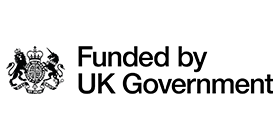
UKSPF Privacy Notice
We are committed to protecting your privacy, and this statement is made in light of the requirements of the General Data Protection Regulation 2016/679 and the Data Protection Act 2018 in order to advise you how we use your personal information.
UKSPF Summary
Lancaster City Council is the Lead Local Authority for the district’s UK Shared Prosperity Fund.
Organisations and projects funded by UKSPF such as ours will collect and share some personal data in order to administer their projects.
When do we collect personal information?
We will collect information from you in order to administer our project when you:
- Provide it to us by completing a registration/enrolment form
- Contact us by any method including email, phone call, social media or visiting our premises
- Attend a training course or engage in an event delivered as part of the UKSPF project
Your personal data may also be used for purposes specific to individual delivery partners, such as delivering other services to you or managing premises security. Where this is the case, this processing will be explained to you separately in the delivery partners own privacy notice.
What personal information do we collect?
Most of the information we use is provided by you on forms you complete as you apply to, register for or engage with the project, or as supporting documentation.
We also collect further information about your attendance, progress and outcomes as you continue to engage with the project.
Some of the information we collect from you is “special category data”. Special category data is information about your race, ethnic origin, political opinions, religious beliefs, trade union membership, genetic data, biometric data used for ID purposes, health, sex life or sexual orientation. It will be clear when we are using this information because we will have asked you for it directly.
We also collect some data concerning criminal convictions. Again, it will be clear when we are using this data as we will have asked you for it directly.
Your data will not be used or shared for any commercial or marketing purposes.
How do we use your personal information?
We use your personal information to administer the project.
Processing activities can be summarised as:
- For the administration of your participation in the project – This includes verifying your identity; checking your eligibility to participate; communicating with you about the project; teaching, assessment and quality assurance and determining and confirming awards.
- Reporting and statistics – We will use your information to compile statistics, project planning, reporting and project administration, as well as for statutory reporting purposes to the Department for Levelling Up, Housing and Communities (DLUHC) and other external agencies, where required.
- Monitoring and compliance – We will use your information to ensure and monitor our compliance with legislation including laws relating to equality, health and safety and immigration.
- We will not use your information for marketing purposes, nor will we share personal details with any other third party apart from Lancaster City Council unless required to do so by law.
How do we protect your information?
We have policies in place to ensure that your information is kept safe and secure, and can only be accessed by people who need to access it.
Examples of our security include:
- encryption, meaning that information is hidden so that it cannot be read without special knowledge (such as a password);
- controlling access to systems and networks, to ensure that only people who need to access information can do so;
- training our staff in how to handle confidential information appropriately;
- procedures for handling information that is kept on paper, such as ensuring it is locked away when not in use;
- regularly testing and updating our technology to ensure that all our security measures are effective and up-to-date; and
- procedures to follow in the event that any breach of security occurs, to ensure that any damage from this is minimised.
If we share your information with third party partners, we will ensure that appropriate contractual terms are agreed to ensure that your data is protected to the same standard no matter who holds it.
Do we share your information with anyone else?
Some of the information we collect will be shared with Lancaster City Council who will use this data to evaluate and report on government funded project activity as per Central Government’s requirements under the UKSPF.
In order to complete their reports, the following will be shared with the council:
- Names of businesses/organisations receiving support
- Unique Identification number and description of service
- Companies House number
- Business address
- What the support was offered
- Outcome of the support
The data shared with the council will only be used to complete evaluations, checks and audits. Generally, the information will be collated and anonymised before it is shared with the Department for Levelling Up, Housing and Communities (DLUHC) unless the UKSPF project is evaluated in more detail or if they are required to do so by law, at which point the information listed above may be shared in its full form.
For further information about your rights, how the council uses your information, and how to get in touch if you have a query or complaint, please see the council’s UKSPF Privacy Notice UKSPF and main privacy notice.
How long will we hold your information?
We will retain your information for 7 years after the project in line with the project’s schedule of data retention.
Your rights and how to find out more
Under data protection law, you have rights we need to make you aware of. The rights available to you depend on our reason for processing your information. Further information about each of these rights can be found on the Information Commissioner’s Office website.
In order to exercise any of the rights listed below, please contact your Delivery Partner in the first instance.
Your right of access
You have the right to ask us for copies of your personal information. This right always applies. There are some exemptions, which means you may not always receive all the information we process.
Your right to rectification
You have the right to ask us to rectify information you think is inaccurate. You also have the right to ask us to complete information you think is incomplete. This right always applies.
Your other rights
You have the right to ask us to restrict or erase your personal information in certain circumstances, and the right to object to how we use it. These rights do not always apply, and we may not be able to comply with your request if we still have a legitimate reason to use your data.
Your right to complain
We work to high standards when it comes to processing your personal information. If you have queries or concerns, please contact your Delivery Partner in the first instance.
If you remain dissatisfied, you can make a complaint about the way we process your personal information to the Information Commissioner’s Office, which is the UK supervisory authority for data protection.
You have a number of rights under data protection law, including the right to ask for a copy of the information we hold about you, and the right to object to our use of your information in certain circumstances.
For further information about your rights, how the project uses your information, and how to get in touch if you have a query or complaint, please see the project’s main privacy notice. https://www.lancaster.gov.uk/
We reserve the right to amend this privacy notice at any time. However, we take your privacy very seriously and will never change our policies or practices to make them less protective of your personal information.
If we make any changes to this policy that significantly affect you, we will aim to notify you directly if we hold contact details for you. You will always be able to find the most up-to-date version of this policy on our website at this address: UK Shared Prosperity Fund (UKSPF): Lancaster & Morecambe College (lmc.ac.uk)
This Version: 01, [October] [2023]

